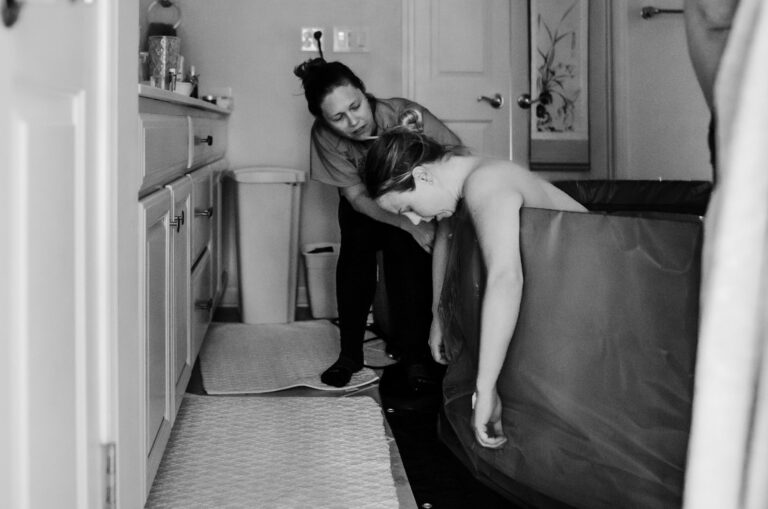Tokophobia—an intense, persistent fear that can shade every thought about pregnancy and childbirth. For many parents, even the first flutter of anticipation can be clouded by deep unease, sleepless nights, or a racing heart at the mere mention of delivery. What if the pain is overwhelming? Could something go wrong with the baby? Are these worries ever going to subside? Such questions swirl endlessly, making it difficult to find calm. At the core, tokophobia isn’t about mild nerves or standard uncertainties. It’s an anxiety that can touch mental peace, shape family decisions, fracture confidence, and even ripple into relationships. Take a closer look, and you’ll see how this anxiety disorder has far-reaching effects—science-backed, complex, but never insurmountable. If you’re grappling with similar shadows of worry, or see a loved one recede behind those fears, practical strategies and medical interventions exist. Expect a dynamic exploration of what defines tokophobia, how it evolves, what symptoms to recognise, why it arises, and, of course, the multifaceted ways to build confidence and resilience throughout pregnancy and beyond.
Tokophobia: What It Really Means
Tokophobia is not ordinary apprehension but a pathological or intense fear of pregnancy and childbirth that overwhelms daily life. Parents may find their thoughts constantly racing—what if labour spirals out of control, or the pain becomes unbearable? Medically, tokophobia is classified as a specific phobia and an anxiety disorder. It operates on two primary levels:
- Primary tokophobia—seen in those who have never given birth (sometimes from teenage years), often triggered by negative stories, fear of the unknown, or past trauma.
- Secondary tokophobia—emerging after a negative or traumatic experience with childbirth, miscarriage, or termination.
These aren’t subtle shades of anxiety. They are overwhelming, sometimes dictating big life choices such as postponing or completely avoiding pregnancy. Some may shy away from sexual intimacy altogether, while others might push for elective cesarean even without medical indications.
This persistent fear is far from rare—current estimates suggest 11–14% of pregnant individuals experience tokophobia. What’s striking is how medical researchers now view it as a complex blend of emotional, biological, and cultural influences, with stigma often preventing timely support.
Triggers, Causes, and Risk Factors
Tokophobia’s roots run deep, entangling several causes:
- Traumatic memories or negative experiences (including sexual abuse) can plant seeds of phobia long before pregnancy.
- Fear of severe pain, uncontrollable medical situations, or risks linked to pregnancy complications can be overwhelming.
- Previous traumatic birth—long, painful deliveries, emergency interventions, or difficult recoveries—raise the risk of secondary tokophobia.
- Earlier miscarriages, stillbirths, or even complicated fertility journeys may multiply anxieties.
- Psychological predisposition: Pre-existing anxiety disorders or depression, sometimes undiagnosed, can heighten vulnerability.
- A sense of medical mistrust, cultural silence on birth fears, or hearing alarming birth experiences from friends and family contribute to escalating anxieties.
- Limited social or emotional support can deepen isolation, amplifying perceived danger.
On the biological front, heightened sensitivity to hormonal changes, or even genetic factors with a family history of depression or anxiety, may play a part. It’s a rolling storm of internal and external elements—science continues to study these interactions for better solutions.
Signs and Symptoms in Everyday Life
How does tokophobia manifest? The answer: it paints itself across mind and body in unexpected ways. For some, mere discussions about childbirth trigger panic attacks, palpitations, or insomnia. Weeks may go by plagued by vivid nightmares, or an all-consuming dread about the well-being of the baby. Parents report avoidance behaviours—canceling antenatal appointments, withdrawing from discussions, or refusing to enter hospitals except when strictly necessary.
Look for these signals:
- Persistent intrusive fears of pregnancy or labour
- Physical reactions: headaches, stomach upset, nausea, relentless fatigue
- Emotional toll: feelings of guilt, embarrassment, irritability, social withdrawal; strained communication with a partner
- Reproductive avoidance: avoiding pregnancy altogether, or insisting upon caesarean section purely because of fear
Tokophobia’s grip on daily functioning is often underestimated. Reaching for support early—whether through a sensitive healthcare provider or a trusted friend—can break the cycle.
Diagnosing Tokophobia: The Scientific Lens
Modern diagnosis revolves around detailed interviews and validated tools such as the Wijma Delivery Expectancy Questionnaire (W-DEQ) or the Fear of Birth Scale (FOBS). These are not just checklists—they dig deep into the quality, intensity, and duration of fear.
Tokophobia often overlaps with other mental health issues like postpartum depression, posttraumatic stress disorder (PTSD), or generalized anxiety. However, the core—disproportionate anxiety centred on labour and delivery—remains the defining marker. Because of strong taboos and shame linked to “admitting fear”, healthcare providers may miss these signals. Partners too can be deeply affected, their own worries centring on both the process of labour and the responsibility that follows.
Impact on Mind, Baby, and Family
What happens if tokophobia goes unchecked? Medical studies highlight increased risks of:
- Prolonged labour
- Requests for pain interventions (sometimes unnecessary)
- Higher rates of elective cesarean section
- Postpartum depression or anxiety
- Challenges in initial parent–infant bonding
- Strained marital or family communication, sometimes even leading to feelings of resentment or isolation.
Concerns over baby’s health can result in compulsive monitoring, repeated questioning, or excessive scanning for reassurance. Such hyper-vigilance, while understandable, can deplete emotional reserves.
Yet, families who address tokophobia together—acknowledging challenges, drafting personalised birth plans, and seeking reassurance—often report smoother transitions into parenthood.
Coping Tools and Science-Backed Solutions
Navigating tokophobia is not a solo journey—medical science recommends a multidisciplinary approach, often blending diverse strategies:
- Cognitive Behavioural Therapy (CBT) stands out for changing negative thought spirals into actionable, rational responses.
- Interpersonal therapy, EMDR (Eye Movement Desensitisation and Reprocessing), and hypnotherapy show promise, especially for trauma-triggered fears.
- In severe cases, medications—under close medical supervision—may provide a safety net for overwhelming depression or anxiety.
- Prenatal classes, hospital tours, and individualised birth planning help demystify delivery and revive confidence.
- Community support—be it peer groups, prenatal support groups, or involvement of doulas—gives an emotional anchor.
- Open, two-way dialogue with the prenatal care team, bringing up even deeply personal fears, is shown to reduce rates of negative interventions.
- Deep breathing, mindfulness, and relaxation techniques—small habits, big effect. Even a few minutes of calm focus can refuel emotional reserves on difficult days.
- Gathering information from positive birth stories or reputable sources can help restore balanced perspectives.
Inviting the partner or close family into conversations at every step reinforces the sense of safety and shared hope.
Medical Viewpoints and Diverse Realities
Not everyone’s experience is identical—cultural context matters, so do unique medical and family histories. In some traditions, speaking openly about childbirth fears may be discouraged. For transgender or gender-diverse parents, anxieties may be compounded by issues of identity or prior experiences with the healthcare system. Tailored support, including bilingual resources when needed, eases these additional burdens. The science is clear—respect, open-minded listening, and adaptability from the care team are non-negotiable foundations.
Understanding How to Move Forward
When daily life remains clouded, or previous traumas intrude upon sleep and joy, psychological support is neither a luxury nor a sign of failure. It’s a strategic step—maternity psychologists, therapists skilled in perinatal mental health, or even new care teams (when trust is broken) help recalibrate emotional well-being. Occasionally, processing birth trauma requires sequential therapy—including EMDR or hypnotherapy—to piece emotions back together and regain a sense of anticipation rather than dread. Above all, isolation is the true enemy; even the smallest interventions can spark new hope.
Research, Future Directions, and Ongoing Hope
Ongoing medical research is pushing boundaries—
- Seeking consistent diagnostic criteria so that early intervention becomes standard
- Exploring creative digital and integrated therapy models
- Documenting real parent stories to improve empathy and shape care standards
- Advocating for routine screening to normalise conversations around tokophobia
Continued investment, both in science and compassion, promises a brighter, less anxious future for families worldwide.
Key Takeaways
- Tokophobia is a severe, persistent fear of pregnancy and childbirth, going far beyond everyday worry.
- This anxiety disorder can have roots in trauma, biological sensitivity, cultural narratives, and lack of emotional support.
- Early recognition of symptoms—mental, physical, and emotional—opens up the path for proactive care.
- Science supports approaches like CBT, psychoeducation, integrated care, and open communication to reduce risks and restore confidence.
- No single “right way” to cope exists, but a blend of medical, community, and personal strategies fits every family best.
- For parents feeling overwhelmed, multiple supportive resources and healthcare experts are available for guidance.
- Unlock more answers and personalised support with the application Heloa, offering expert advice and free health questionnaires.
Questions Parents Ask
Is tokophobia common among partners or fathers?
Definitely, tokophobia is not just limited to those carrying the baby. Partners may develop intense anxiety over the well-being of their family, dreading the unpredictability of childbirth or fearing complications. Compassionate dialogue—encouraging open sharing of worries—can help couples approach the journey together, strengthening trust and mutual understanding.
Can tokophobia result in someone avoiding pregnancy altogether?
Yes, for some, the prospect of pregnancy is so daunting it leads to postponement or outright avoidance. This decision arises not from weakness but genuine suffering. Gentle support and open conversation with medical professionals can illuminate options, including therapy or step-by-step planning.
What is the most supportive approach loved ones can offer?
Active listening offers powerful reassurance. Rather than dismissing fears, friends and family can validate concerns, demonstrate patience, and encourage engagement with knowledgeable professionals if needed. Sometimes, just being a steady presence is the most tangible form of support.
What are the most effective therapies for tokophobia?
Research highlights the benefits of Cognitive Behavioural Therapy (CBT), psychoeducation, EMDR, and in some situations, medication. Support from an understanding maternity care team, combined with access to prenatal classes and community networks, builds a robust foundation for recovery.
How does tokophobia affect the parent-baby relationship?
In some cases, anxiety may temporarily dampen the process of bonding with the baby. Fatigue, rumination, or intrusive thoughts can overshadow moments of connection. With proper psychological attention, support, and patience, most parents find the relationship steadily thrives.
Is it possible for symptoms of tokophobia to disappear on their own?
While some fears do lessen naturally, intense or chronic tokophobia often requires intentional support. Early intervention—mentally and emotionally—reduces risks of complications and nurtures well-being for the entire family.
How to identify if normal labour anxiety is becoming tokophobia?
Pay attention to whether distress interferes with daily enjoyment, sleep, or basic functioning. Obsessive fears about pregnancy, avoidance of discussions, or a strong insistence on interventions without clear medical need might indicate something beyond “usual nerves.”
Are there specific resources for diverse families or those facing cultural barriers?
Yes, many healthcare teams offer multilingual resources, community groups, or access to counsellors sensitive to diverse family structures and traditions. Personalised birth planning and open acknowledgment of culturally influenced anxieties are core to effective support.









